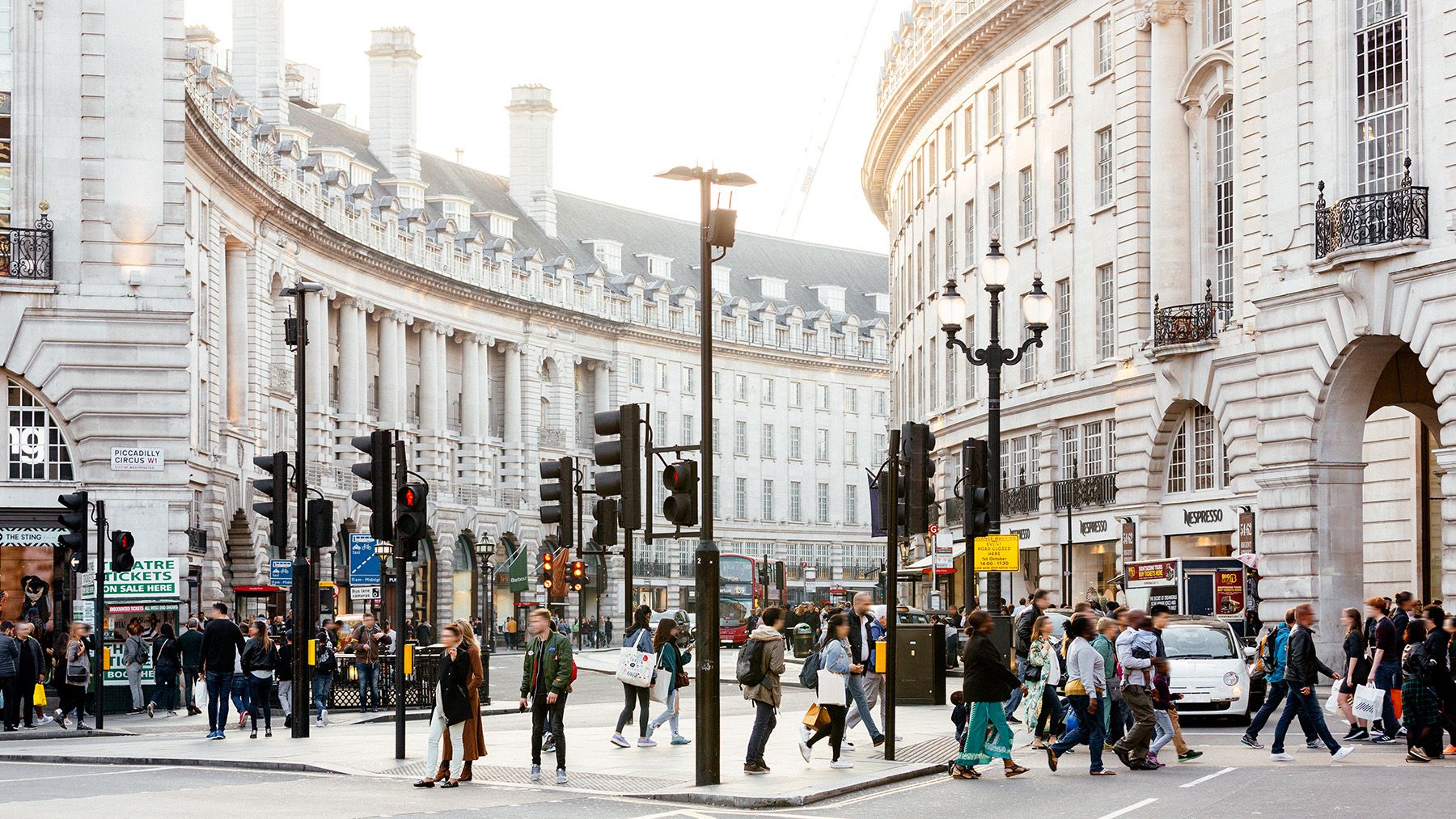
British consumers picked up the pace of their spending last month, and sales volumes over the three months to April grew by the most since mid-2021, according to official data that suggested limited impact from the surge in inflation.
Sales volumes in April rose by a slightly stronger-than-expected 0.5 percent from March, when they slumped by 1.2 percent as unusually heavy rain kept shoppers at home, the Office for National Statistics said on Friday.
Economists polled by Reuters had forecast a 0.3 percent rise in April, a month when welfare payments for many lower-income households rose.
In the February-to-April period, sales were up by 0.8 percent from the previous three months, the biggest such increase since the three months to August 2021.
“April saw a surprising uplift in retail sales despite ongoing inflationary pressures,” said the head of retail at Deloitte, Oliver Vernon-Harcourt.
“The economic environment remains incredibly tough for many, but consumer confidence is slowly improving from record lows seen in the past year.”
The sterling rose against the US dollar and the euro after the data was published.
Emma Mogford, a fund manager with Premier Miton Monthly Income Fund, said rising wages were offsetting some of the cost-of-living squeezes. “However, any increase in unemployment later in the year could dampen confidence once more,” she said.
Inflation slowed to 8.7 percent in April from 10.1 percent in March, but that was a smaller-than-expected fall and measures of underlying inflation rose, data published earlier this week showed.
On Wednesday, Bank of England Governor Andrew Bailey said that inflation could prove “sticky and stubborn”.
Squeeze to Tighten
There were some reminders in Friday’s figures of how the cost-of-living crisis is affecting household spending.
Retail sales volumes in April were 3.0 percent lower than a year earlier. Food sales were down by an annual 2.7 percent, although that was the second-smallest fall since the end of 2021.
Martin Beck, chief economic adviser to forecasters EY ITEM Club, said the likelihood of more BoE rate hikes would hit the finances of many people on fixed-rate mortgage deals who have not yet been impacted by the climb in borrowing costs.
“On that score, 2.5 million households face a rise in mortgage interest payments during 2023,” he said.
ONS chief economist Grant Fitzner said jewellers, sports retailers and department stores all had a good month in April.
JD Sports Fashion has said it expects underlying profit to exceed 1 billion pounds ($1.26 billion) for the first time this year as young shoppers bought more trainers, joggers and hoodies. Marks & Spencer, one of Britain’s best-known retailers, this week forecast modest revenue growth.
“Despite continued high food prices, supermarkets also recovered from the fall in March. However, these were partly offset by a drop in the amount of fuel sold, despite prices also dropping,” Fitzner said.
On a monthly basis, food sales rose by 0.7 percent after falling 0.8 percent in March.
Retailers said there were signs that a wave of strikes by public sector workers in April was partly behind the 2.2 percent drop in fuel sales volumes in the month, an ONS official said.
By William Schomberg; Editors William James, Andrew Cawthorne and Hugh Lawson
Learn more:
This week, Burberry’s chairman took the UK prime minister to task over his decision to eliminate tax-free shopping for tourists, calling Britain the ‘least attractive shopping destination in Europe.’



